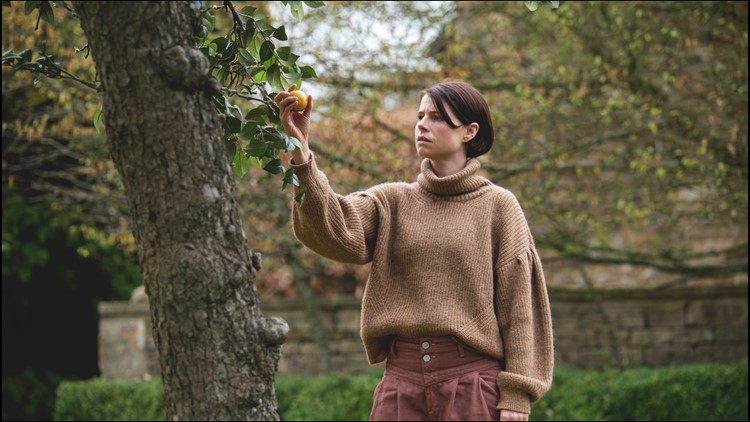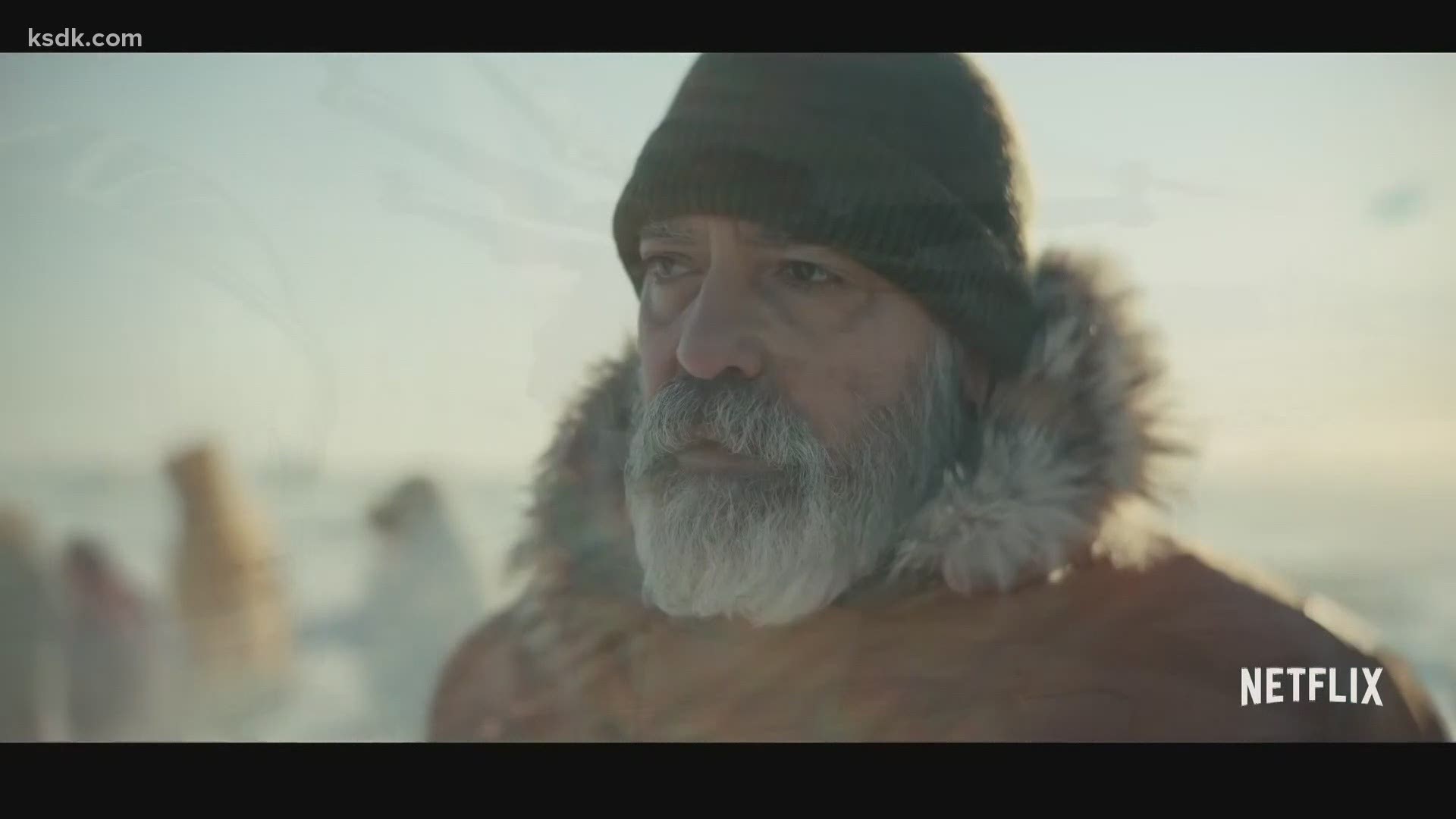ST. LOUIS — It's never a good sign when the main character in a movie shows up at a mysterious yet gorgeous countryside home, and immediately pulls an apple from a tree and takes a large bite. Things always go downhill from there. Just ask Harper, a widow quick to dismiss her still-not-changed last name when greeting somebody--a defense mechanism that the friendly yet odd landlord picks up early on in Alex Garland's "Men," a challenging yet thought-provoking movie about grief, guilt, and the wicked game that male toxicity can play on the female mind.
Played like a grenade stuck in a vice grip by Jessie Buckley, Harper is escaping London tragedy-her husband jumped to his grisly death and they locked eyes on his way down-finding peace and hopeful tranquility in the English country. But what starts out as beautiful quickly turns to peculiar, and that gives way to an awareness that spooks our heroine. Garland's films, "Ex Machina" and "Annihilation" among them, like to keep the audience off-balance and uncomfortable while keeping what's actually going on away from their brain as long as he can.
We aren't quite sure what caused the levee to break between Harper and her husband, James (played well by Paapa Essiedu), but we do know about an unfair ultimatum he made. Garland's wicked script delivers the details in doses, all the while Harper finds herself increasingly haunted on her vacation. A nice walk leads to a scary yet echo-friendly tunnel, one that shapes a great sequence in "Men." As Harper creates a song with a combination of echoes, she begins to realize that she may not be alone in the tunnel. But instead of getting gory and familiar with its fright this early in the game, Garland just heightens the tension and suspense of the moment. If you're not gripping the chair and seat tightly, the IPA you just consumed must have been potent.
Potent is the arena the writer/director likes to play in with his horror-tinged tales. Like Robert Eggers, he makes similar-feeling yet never comparable movies. The kind of slow-burning powder kegs that an audience member keeps trying to guess when it will go off, and continues to be wrong about it. Garland doesn't follow standard horror genre conventions, never choosing the shortcut for a scare. He prefers to climb into our heads and mess with our own sensibilities in a good, cinematic way. "Men" is the kind of film that will get the fire started in the brains of every would-be, ambitious-minded screenwriter. These unkempt yet fascinating mindbenders work their inception power as the movie plays out.
Buckley grounds it all as the tormented Harper. From "I'm Thinking About Ending Things" to "The Lost Daughter" to this, she chooses messy, hard-to-play kinds of roles that take her talent in different directions. She doesn't overplay or underplay the emotions of this widow, one who can't get the thought out of her head that she may have driven James to jump. She is the center of the tale, but the audience isn't told to love and support her right off the bat. The mystery here is as much of a supporting character as the addicting scenery.
As great as Buckley is, the best performance in "Men" though belongs to a man after all: Rory Kinnear. He is Geoffrey, the kind yet quick-assuming landlord who initially rubs Harper wrong with his direct comments. Kinnear also plays several other characters in the movie, ranging from a rude cop to young punks in a bar. The naked guy who seems to be merging with nature who stares directly at Harper? Kinnear too. He's the overreaching priest who pries too hard into Harper's tragedy, asking her questions that she has asked herself a hundred times already. Kinnear is everywhere and everything all the time in Garland's "Men," dialing the creepy factor up and down in each of his personas/entities.
Wait for the scene, witnessed in the preview for the film, where a young actor has Kinnear's face superimposed on his body. Kinnear's task in the film is always tall, and a (literal) out of body experience scene in the climax of the film is a showcase for his impressive talent. You won't see him as the nice assistant to M in the Daniel Craig Bond films after leaving "Men." This is his coming out party, a performance on par with James McAvoy's in "Split," but even more twisted.
Garland's film isn't exactly split; merely a deep dive manifestation of grief, and how guilt always follows loss. "Could I have done something different?" That's the mantra that coerces through Harper, something played exquisitely by Buckley. She never over plays a role, a trait that really helps "Men" come together so succinctly even in its maddening and graphic finale.
This film isn't for the faint of heart. It's gruesome and graphic, refusing to shy away from the most grisly of Harper's memories, even the moment where she walks out and finds James' body. The camera lingers often here, ruminating on how the voices in our head never quite shut up. They raise questions and thoughts that are too addicting to put away. Garland's movies don't walk a straight line, because he's not interested in clear-cut answers or pleasures.
While the trailer and idea of the film point to a painting of men as the toxic enemy, he doesn't tackle it in a one-way street sort of fashion. Life isn't that easy to figure out, after all. Garland doesn't just want to shock or scare you; he wants to get you thinking. Just don't expect to leave the theater with a neatly tied bow of an ending. Classifying it as a cliffhanger wouldn't be accurate, but the end of "Men" will have you thinking and theorizing.
As much as I admired it though, there is a coldness and black sheep mentality to it that will make it hard to love. "Men" is the type of movie that can live inside your head for days without getting a Christmas card later that year. But the lack of shock value or horror shortcuts taken, and a heartbreaking final piece of dialogue, is what makes it something else. No pretentious "gotcha" moment. Thank you, Alex.
Just all the uncomfortable truths about marriage, the uneasy yet very real connection between nature and grief, and hard-to-explain things portrayed on screen for 100 minutes.
Here's the final thing. Alex Garland's "Men" goes big instead of going home. How that makes you feel is up to individual interpretation. Good luck.



